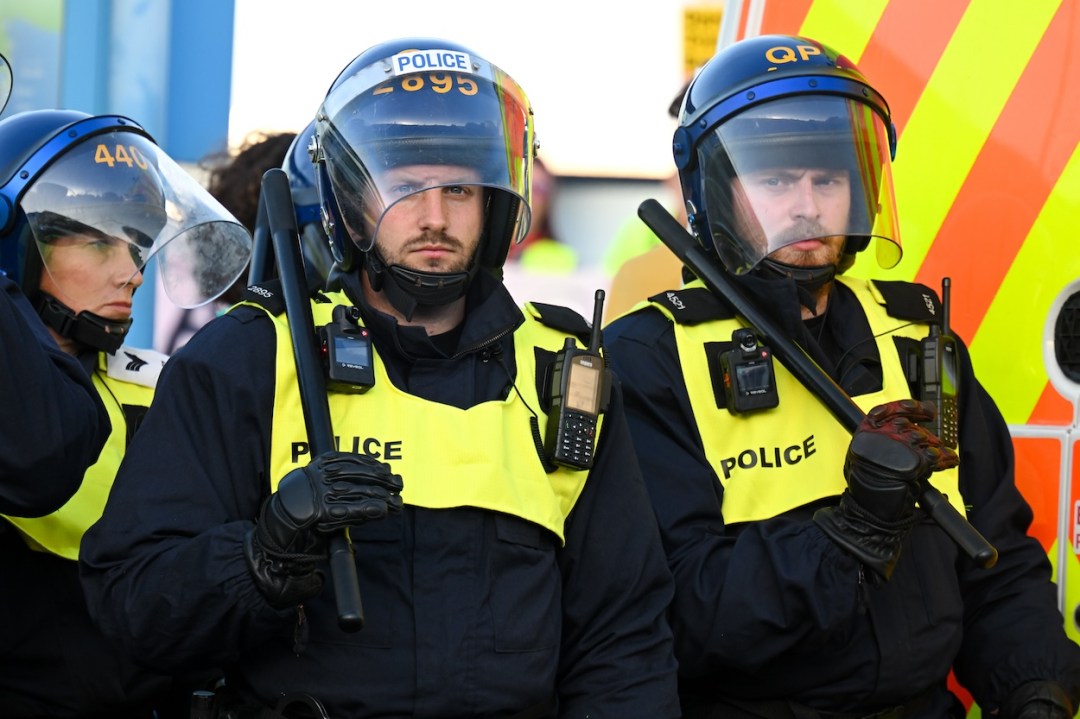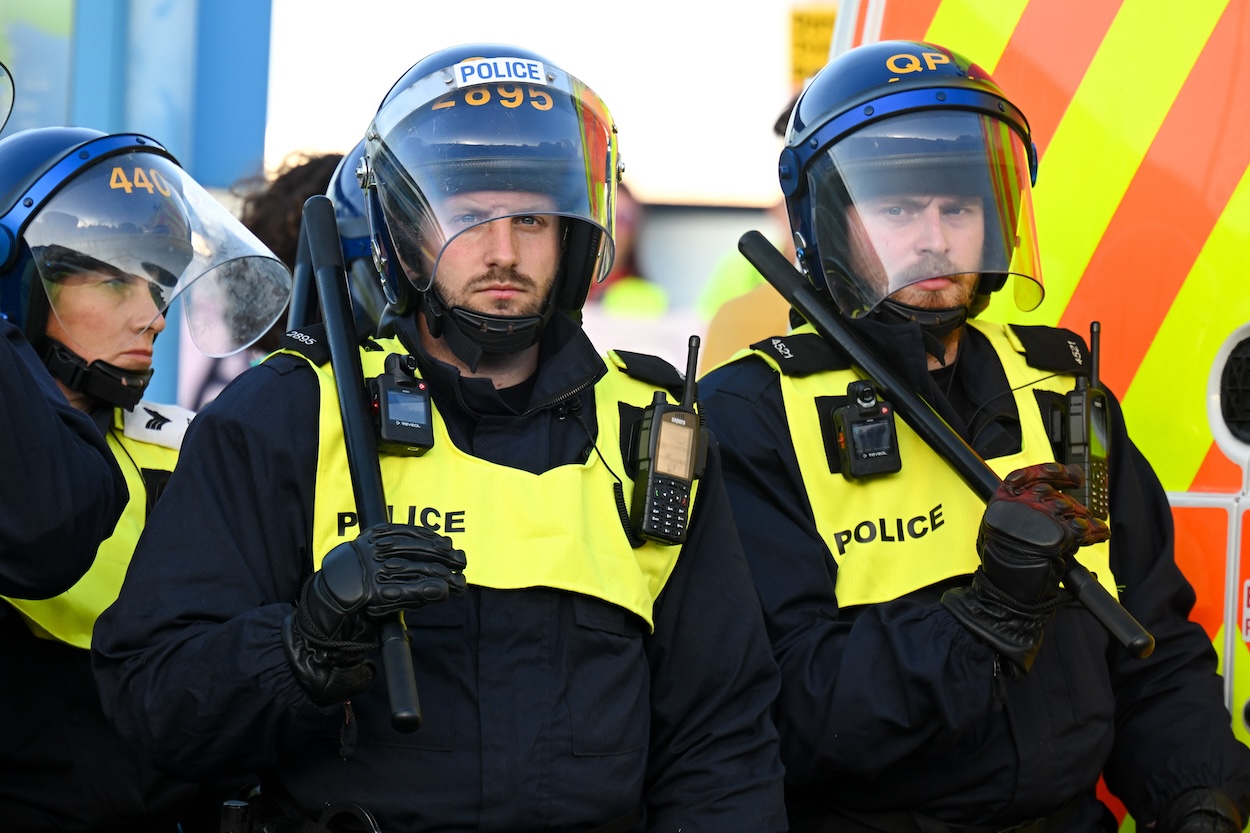I was 20, and in the recovery room of my local hospital, coming round from general anaesthetic after minor surgery. My mind was lost wherever our minds go in such conditions, steering itself gently back into its familiar harbour. But then, suddenly – or as suddenly as anything can be when you’re in that numbed nirvana – I became aware that someone in the next pallet along was addressing me. He was staring at me from his own fugue state, and slurring the words, ‘You’re that copper. You are. You’re that copper.’
Now, talk to any nurse, and they’ll tell you the very peculiar and often entertainingly uninhibited things that people come out with as they drool back into consciousness. (A medical friend of mine remembers telling a rather grand, Penelope Keith-as-Margo-Leadbetter style lady, ‘It’s time to go back to the ward, Mrs X,’ and being told in penetratingly plummy tones, ‘Will you just fuck off!’) But I didn’t find this misidentification all that peculiar. I was used to it, because for a good while I’d been mistaken regularly for a certain local police officer.
I never actually met this chap, but he haunted me. I walked into pubs and conversations dropped, significant glances of warning were exchanged, hands slipped into pockets. Bar staff nodded to me. I learnt eventually that my doppelgänger in the county constabulary went by the name of Derek. When directly addressed I denied my Derekness, but such was the apparent resemblance that this didn’t make much difference. ‘No, you are him,’ I remember a man telling me flatly.
When I moved away from home, I expected to leave Derek in the past. And I did – but the misidentifications continued. There was the woman shouting ‘Leo! Leo! LEO!’ at me across the concourse of Charing Cross station. A bloke who started an amiable conversation with me under the impression that I was a former work colleague. And any number of people casually saying hi and clapping me on the shoulder, before startling and then backing away saying sorry.
I just assumed this happened to everybody. It’s one of those problems you don’t know that you have, like body odour or an unzipped fly. It took me until I was about 30 to twig that this was an issue, when I saw on television the 1970 film The Man Who Haunted Himself starring Roger Moore, in which the same phenomenon is portrayed as very unusual.
When I realised, everything snapped into place. Long-buried fragments of memory bubbled up – the time I was nearly ushered on to the wrong coach during a school trip to Tring Museum by an unfamiliar teacher, who suddenly said, ‘You’re not Simon!’ Or when I was congratulated by another teacher for my prowess at the standing long jump.
I was once told by someone well versed in these matters that I have a classic Norman peasant face
It can be a bit bruising to the old ego. I thought I was more memorable. I was once told by someone well versed in these matters that I have a classic Norman peasant face. Somewhere in the lost past there must have been a very prodigious progenitor of the genes. People regularly send me photographs of my doubles – there was one at a table at an LA awards ceremony a couple of years ago that was so uncanny that I started to doubt myself. I was in Chiswick at the time, but somehow I was also in a tux in Beverly Hills. Even my mother refused to believe it wasn’t me.
Male ageing, of course, with its attendant creasing, greying, balding and broadening, can make a man look like somebody else entirely. As the process took effect on me, I thought maybe I’d escape my duplicates.
But no – now I just looked like someone else that looked like lots of other someone elses. And now Derek was supplanted by Ben, a habitué of the same pubs as me in my thirties. Again, I never actually met him. Ben was a lot more fun than Derek, and frankly a lot more fun than me. People were always really pleased to see who they thought was Ben. He was a laugh. And wise too. ‘I just wanted to say, the advice you gave me was great, you were absolutely right,’ someone once told him, via me.
Another aspect of the identity paradox is that people like to tell you that you remind them of somebody famous. I’ve had many of these over the years and it’s a bafflingly random portfolio; some flattering, some much less so. I’ve had, among others, Chris Evans, Curt Smith of Tears for Fears, Orson Welles, Ricky Gervais, Gyles Brandreth, Morrissey, Chris Whitty, and Elton John. None of whom look remotely like each other, so how can they possibly all look like me? You start to wonder, what exactly is the criteria here? Having two eyes and a nose?
But I’m resigned to it now. And there are advantages too. I don’t have children, which can make you feel a bit sad sometimes, but I have the consolation of knowing there are hundreds of versions of me out there, collaring criminals or partying hard, and being greeted with cries of ‘Gareth! Long time no see!’








Comments